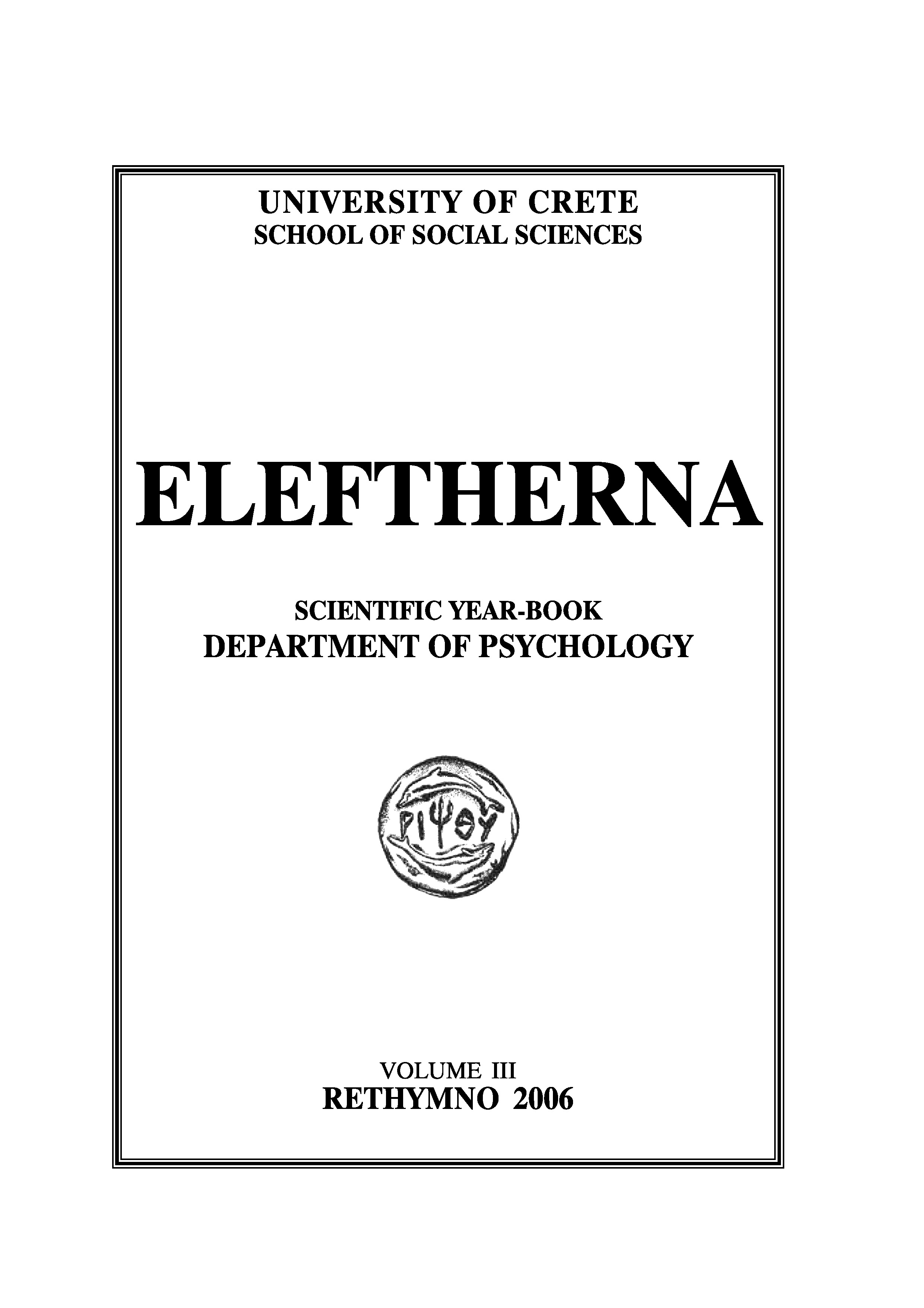Society and crime in post-modem societies
DOI:
https://doi.org/10.26248/eleutherna.v3i0.139Λέξεις-κλειδιά:
History of criminology, sociology and criminology, the punitive tum of criminal policy, neo-liberalism and criminologyΠερίληψη
The paper throws a detailed view on the development of criminology from a
sociological perspective. In contrast to the usual historical na"ative of the
discipline that credits Lombroso and his Italian school with the establishment of
criminology the point is made that the biological school was preceded by the
moral statisticians of the 19th century with the Belgian A. Quetelet as its scientific
leader. However, the socio-structural approach by the moral statisticians was
suppressed and replaced by the Italian individualistic perspective that gained
hegemony for almost one century. The sociological viewpoint re-entered the
criminological agenda as biographical and other social-environmental factors,
albeit on a strictly individual level
The full strength of a sociological perspective was achieved by the
paradigmatic shift in the sixties of the last century. Instead of crime and the
criminal the process of criminalization received emphasis and prominence in the
discipline. Crime was no longer taken as an ontological phenomenon and the
"natural" input of criminological research and reasoning, but its definition,
operation and function became a matter of empirical and theoretical study.
Among others, authors like Foucault and Christie have contributed to this
change. The paper ends with a reflection on the fundamental change of the penal
system in modem societies as D. Garland has documented in his famous book
"Culture of Control".
Λήψεις
Δημοσίευση
Πώς να δημιουργήσετε Αναφορές
Τεύχος
Ενότητα
Άδεια
Tα πνευματικά δικαιώματα των συγγραφέων ρυθμίζονται σύμφωνα με την άδεια Creative Commons Attribution-NonCommercial-ShareAlike 4.0 International (CC BY-NC-SA 4.0).
Στο πλαίσιο αυτής της άδειας, το EJPBS παρέχει άμεση πρόσβαση στο περιεχόμενό του με βάση την αρχή ότι η ελεύθερη διάθεση της έρευνας στο ευρύ κοινό καθιστά εύκολη τη διάχυση της γνώσης σε παγκόσμιο επίπεδο.


